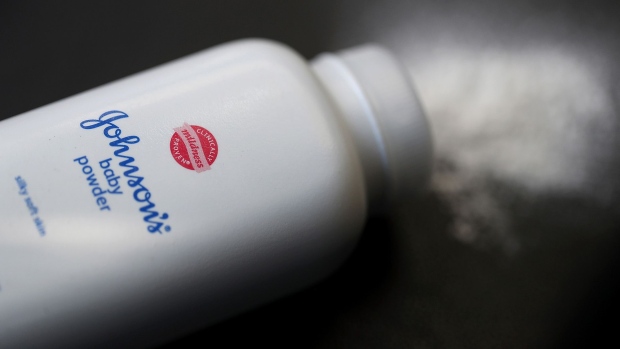Nov 3, 2020
J&J loses bid to appeal US$2.1B Missouri talc-damage award
, Bloomberg News

Johnson & Johnson lost a bid to appeal a US$2.1 billion Missouri award to women who claimed its baby powder was laced with asbestos that caused their cancers.
The Missouri Supreme Court on Tuesday declined to hear J&J’s appeal of a 2018 finding by a St. Louis jury, according to court records. The jury found that the company’s talc-based powder was a leading cause of 20 women’s ovarian cancers and that J&J should pay as much as US$4.7 billion in damages. An intermediate appeals court cut the award by more than half.
J&J officials said they would ask the U.S. Supreme Court to find that the trial judge erred in allowing the women’s claims to be joined together for trial in state court, especially since some of the women were residents of other states.
The case involved “a fundamentally flawed trial, grounded in a faulty presentation of the facts,” Kim Montagnino, a company spokeswoman, said in an emailed statement. “Johnson & Johnson will continue to vigorously defend the safety of the product and the unfounded allegations made against the company.”
The original verdict, which included one of the largest punitive-damages awards in U.S. legal history, sparked a significant drop in J&J’s shares. On Tuesday, the company’s stock fell less than 1% after the Missouri Supreme Court’s decision to rebuff J&J’s appeal was made public. The shares closed down 0.14 per cent at US$138.50.
J&J said in a filing with the Securities and Exchange Commission on Tuesday that it would record a reserve of about US$2.1 billion, excluding interest, following the decision.
Getting the U.S. Supreme Court to review the case may be “a long shot,” said Tom Claps, a litigation analyst with Susquehanna Financial Group. The high court reviews fewer than 1 per cent of the cases appealed to it annually, he noted.
“The trial jury sent a loud message alerting the world to the dangers of talc,” Mark Lanier, who represented the women in the St. Louis case, said in an emailed statement. “Now that message has been confirmed through each level of the state’s appellate system.”
The women in the St. Louis case cited internal J&J documents from the early 1970s indicating officials found traces of asbestos in their talc products and never made those findings public.
J&J pulled its talc-based baby powder off the shelves in the U.S. and Canada last month but still faces almost 20,000 lawsuits blaming the product for causing either ovarian cancer or mesothelioma, a cancer linked specifically to asbestos exposure.
The New Brunswick, New Jersey-based company has lost other cases at trial, with juries across the U.S. ordering it to pay hundreds of millions of dollars in damages. Judges slashed some of those awards while others have been thrown out or are on appeal. J&J also has won some cases.
The case is Ingraham v. J&J, No. SC98674, Missouri Supreme Court (Jefferson City).